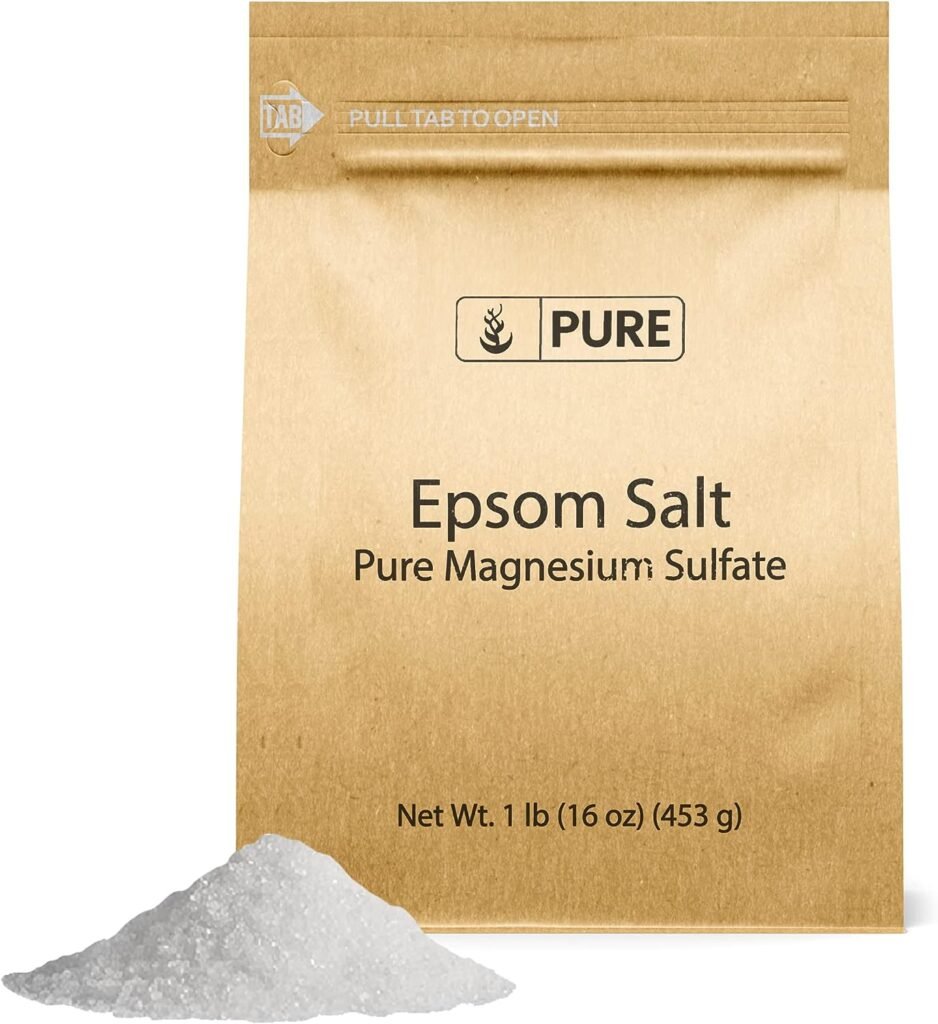This post may contain affiliate links. Which means I may receive a commission for purchases made through links, at no cost to you. I will only recommend products that I have personally used. Learn more on my Disclaimer Page and Privacy Policy Page
MAGNESIUM OXIDE
-
- Migraines, Many migraine sufferers have been found to have lower levels of magnesium compared to those without migraines. Magnesium deficiency is thought to play a role in the development and frequency of migraines. Reduced severity and duration: Some research suggests that magnesium oxide supplementation may not only reduce the frequency of migraines but also decrease their severity and duration when they do occur.
-
- Depression, Magnesium plays a role in regulating the body’s stress response system, which can be dysregulated in depression. Magnesium oxide supplements may help modulate the stress response and reduce symptoms associated with depression. Also magnesium has been shown to have neuroprotective properties, which may help prevent or reduce damage to brain cells associated with depression and other mood disorders.
-
- Diabetes, Improves insulin sensitivity and plays a crucial role in glucose metabolism and insulin sensitivity. People with diabetes often have lower magnesium levels, which can contribute to insulin resistance. Magnesium oxide supplements can help improve insulin sensitivity, allowing cells to use insulin more effectively and better regulate blood sugar levels.
-
- Heartburn, Acid neutralization: Magnesium oxide is an effective antacid and can neutralize stomach acid, making it useful for treating conditions like acid reflux or heartburn. Other forms of magnesium may not have this acid-neutralizing property.
-
- Elemental magnesium content: Magnesium oxide has a higher elemental magnesium content compared to other magnesium compounds. For example, magnesium oxide contains approximately 60% elemental magnesium by weight, while magnesium citrate contains about 16% and magnesium glycinate contains around 14%.
MAGNESIUM CITRATE

-
- Strengthening Bones, Magnesium is involved in the formation of new bone tissue by promoting the activity of osteoblasts, the cells responsible for bone formation and mineralization. Magnesium plays a crucial role in enabling the absorption and utilization of calcium by the body. Calcium is the main mineral component of bones, and without adequate magnesium, calcium cannot be effectively absorbed or utilized for bone formation and maintenance.
-
- Improves sleep, Magnesium citrate may help improve sleep quality, which can contribute to overall feelings of relaxation and calmness. Magnesium has been shown to enhance melatonin production, the hormone that regulates the sleep-wake cycle.
-
- Reduces stress response, Magnesium citrate can modulate the body’s stress response by regulating cortisol levels. Cortisol is a hormone released during times of stress, and high levels can contribute to feelings of anxiety and nervousness.
-
- Makes it easier to use the bathroom, compared to some stimulant laxatives, magnesium citrate is considered a gentler option for relieving constipation without causing cramping or severe discomfort. Magnesium citrate is classified as an osmotic laxative. At sufficient doses, it can induce a bowel movement by increasing motility in the intestines and hydrating the stool.
-
- Electrolyte balance, Magnesium is an important electrolyte that works alongside other minerals like calcium, sodium, and potassium to regulate muscle function. Maintaining proper electrolyte balance is essential for preventing muscle cramps, especially during exercise or hot weather.
-
- Anti-inflammatory effects, Magnesium has anti-inflammatory properties that may help reduce inflammation in muscles, which can contribute to cramping and soreness.
-
- Nerve function: Magnesium is involved in nerve impulse conduction, which is necessary for proper muscle function. Adequate magnesium levels can help prevent the erratic nerve impulses that can lead to muscle spasms and cramps.
MAGNESIUM GLYCINATE

-
- Reduces fatigue, Magnesium deficiency has been linked to increased feelings of fatigue and low energy. Supplementing with magnesium glycinate may help replenish magnesium levels and reduce fatigue, especially in those with a deficiency. Also plays a crucial role in the production of adenosine triphosphate (ATP), which is the main energy currency of cells. By ensuring adequate magnesium levels, magnesium glycinate may help optimize ATP production and energy metabolism.
-
- Promotes better sleep, The glycine component of magnesium glycinate may have a calming effect on the nervous system, promoting better sleep quality. Adequate, restful sleep is essential for maintaining energy levels throughout the day.
-
- Supports brain health, Magnesium is essential for proper brain function, and deficiency has been linked to an increased risk of neurological disorders, including those related to mood. Magnesium glycinate may help support overall brain health and cognitive function.
-
- Improves mood symptoms, PMS can cause mood swings, irritability, and anxiety. Magnesium glycinate may help regulate neurotransmitters like serotonin and GABA, which are involved in mood regulation. This can potentially alleviate mood-related PMS symptoms.
-
- Blood Pressure, Several studies have suggested that magnesium supplementation, including magnesium glycinate, may help lower blood pressure in individuals with hypertension or prehypertension.
-
- Stress Management, Magnesium is involved in regulating the body’s stress response and promoting relaxation. Chronic stress can deplete magnesium levels, leading to fatigue and decreased energy. By supporting stress management, magnesium glycinate may indirectly help maintain energy levels.
MAGNESIUM SULPHATE
-
- Soothe Muscles, Magnesium sulfate, also known as Epsom salt, magnesium sulfate is typically used externally in bath soaks to promote relaxation, soothe sore muscles, and alleviate stress. It can also be administered intravenously in medical settings to treat magnesium deficiency or eclampsia during pregnancy.
-
- Skin Health, Magnesium sulfate can help soothe dry, irritated skin and may be beneficial for conditions such as eczema or psoriasis. It can also aid in exfoliation and detoxification when used as a scrub or incorporated into skincare products.
-
- Constipation Relief, taken orally, magnesium sulfate can act as a laxative to relieve occasional constipation. It works by drawing water into the intestines, softening stool, and promoting bowel movements.
-
- Wound Healing, Some research suggests that magnesium sulfate may have wound-healing properties and could aid in the treatment of minor wounds, cuts, or abrasions. It may help reduce inflammation, promote tissue repair, and prevent infection when applied topically
MAGNESIUM CHLORIDE
-
- Asthma, Magnesium Chloride has bronchodilator properties, meaning it can help widen the airways in the lungs. This can potentially improve airflow and alleviate symptoms such as wheezing and shortness of breath in individuals with asthma. Magnesium Chloride may have anti-inflammatory effects, which could help reduce airway inflammation and hyperreactivity in asthma. Chronic inflammation of the airways is a key feature of asthma, so reducing inflammation may help improve symptoms and lung function.
-
- Vascular Health, Magnesium chloride may help improve endothelial function, which is essential for healthy blood vessel function. By promoting endothelial relaxation and reducing inflammation, magnesium chloride can support overall vascular health and contribute to lower blood pressure
-
- Reduction of Arterial Stiffness, Magnesium Chloride may help reduce arterial stiffness, which is a common characteristic of hypertension. By improving arterial elasticity, magnesium chloride can help lower blood pressure and reduce the workload on the heart.
-
- Blood Sugar Control, Magnesium chloride may help regulate blood sugar levels by improving glucose uptake into cells and reducing insulin resistance. By supporting healthy glucose metabolism, magnesium chloride can help stabilize blood sugar levels and reduce the risk of hyperglycemia in individuals with diabetes.
-
- Muscle Function, Magnesium chloride supports proper muscle function, which indirectly benefits bone health. Strong muscles help support bone structure and reduce the risk of falls and fractures, especially in individuals with osteoporosis.
MAGNESIUM L-THREONATE
-
- Alzheimers Disease, Magnesium L-threonate has been shown to increase magnesium levels in the brain more effectively than other forms of magnesium. This is important because magnesium plays a crucial role in synaptic plasticity, neurotransmitter function, and neuronal signaling, all of which are vital for maintaining cognitive function and memory.
-
- Memory, Animal studies have demonstrated that supplementation with magnesium L-threonate can improve memory performance in aged animals and in animal models of Alzheimer’s disease. These effects are believed to be related to the ability of magnesium L-threonate to enhance synaptic plasticity and strengthen memory formation processes in the brain.
-
- Cognitive Benefits, Research suggests that magnesium L-threonate may support cognitive function, memory, and overall brain health. Studies have shown that supplementation with magnesium L-threonate can improve synaptic density, synaptic plasticity, and memory performance in animal models. These cognitive benefits are believed to be related to magnesium’s role in supporting neuronal signaling and synaptic transmission.
-
- Memory and Learning, Studies have shown that magnesium L-threonate supplementation can improve memory and learning abilities in animal models and human studies. This cognitive enhancement is attributed to magnesium’s role in supporting neuronal signaling, synaptic transmission, and memory formation processes in the brain.











